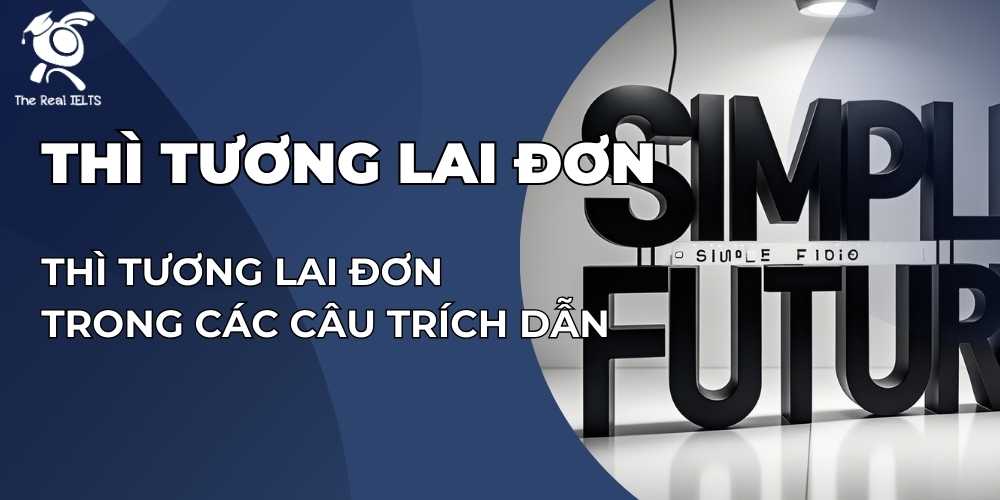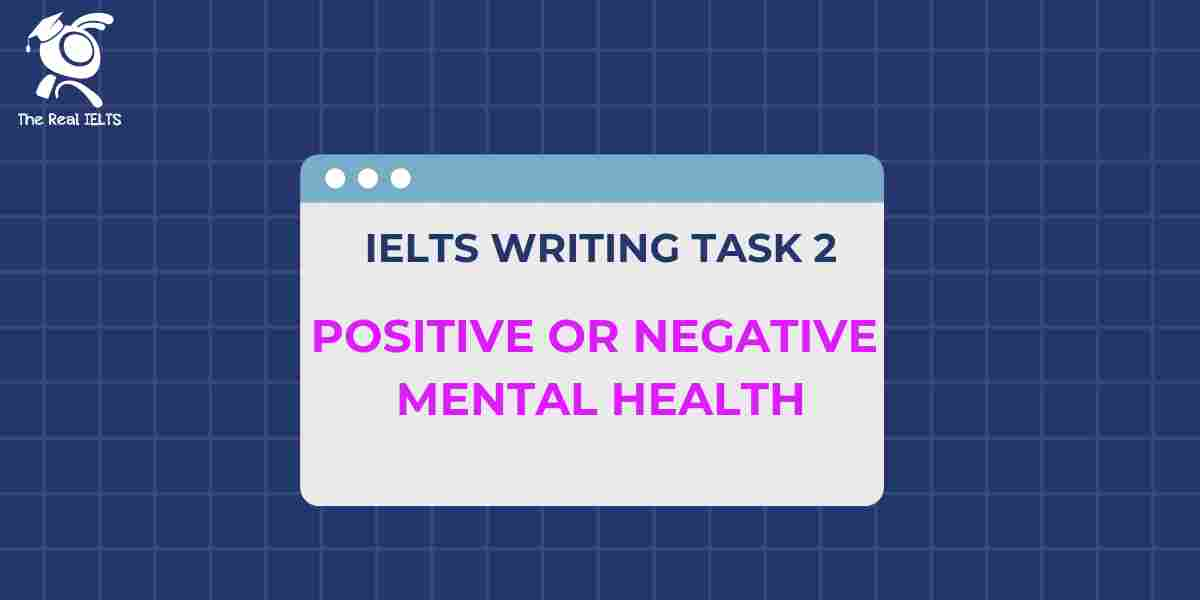Bài Writing luyện tập lần này sẽ có chủ đề về việc nâng cao trí tuệ cảm xúc cá nhân. Đây là một chủ đề mang tính cá nhân nên sẽ phụ thuộc nhiều vào khả năng triển khai của mỗi học viên khi gặp phải đề thi Writing như thế này.
Dàn ý triển khai bài Writing về Enhancing Emotional Intelligence for Personal Growth
Introduction
- Hook: A relevant quote or statistic about emotional intelligence (EQ).
- Background Information: Briefly explain what emotional intelligence is.
- Thesis Statement: Introduce the main points of the essay, stating that enhancing emotional intelligence is crucial for personal growth.
Body Paragraph 1: Understanding Emotional Intelligence
- Definition: Explain the concept of emotional intelligence.
- Include the components of EQ (self-awareness, self-regulation, motivation, empathy, social skills).
- Importance: Discuss why EQ is important in personal and professional life.
- Relate it to better relationships, effective communication, and mental well-being.
Body Paragraph 2: Strategies to Enhance Self-Awareness
- Reflection: Encourage regular self-reflection practices.
- Journaling, meditation, or mindfulness exercises.
- Feedback: Seek constructive feedback from others.
- Benefits of understanding how others perceive you.
Body Paragraph 3: Developing Self-Regulation
- Stress Management: Techniques to manage and reduce stress.
- Deep breathing exercises, time management skills.
- Impulse Control: Strategies to improve impulse control.
- The importance of pausing before reacting.
Body Paragraph 4: Fostering Motivation
- Goal Setting: The role of setting and achieving personal goals.
- SMART goals (Specific, Measurable, Achievable, Relevant, Time-bound).
- Positive Thinking: Cultivating a positive mindset.
- Techniques such as affirmations and visualization.
Body Paragraph 5: Building Empathy
- Active Listening: Practicing active listening skills.
- Techniques to improve listening, such as asking questions and summarizing what others say.
- Perspective-Taking: The importance of seeing situations from others’ perspectives.
- Exercises to enhance empathy, such as imagining oneself in another person’s shoes.
Body Paragraph 6: Improving Social Skills
- Communication Skills: Enhancing verbal and non-verbal communication.
- Role-playing and practice scenarios.
- Conflict Resolution: Strategies for effective conflict resolution.
- Techniques such as finding common ground and staying calm during disagreements.
Conclusion
- Summary of Main Points: Recap the importance of each component of emotional intelligence and the strategies to enhance them.
- Restate Thesis: Reiterate how enhancing emotional intelligence contributes to personal growth.
- Closing Thought: End with a call to action or a thought-provoking statement about the continuous journey of improving emotional intelligence.
Từ vựng và cụm từ vựng cần dùng
- Emotional intelligence – Trí tuệ cảm xúc
- Personal and professional success – Thành công cá nhân và chuyên nghiệp
- Understand and manage our emotions – Hiểu và quản lý cảm xúc của chúng ta
- Recognize and influence the emotions of others – Nhận biết và ảnh hưởng đến cảm xúc của người khác
- Better relationships – Mối quan hệ tốt hơn
- Effective communication – Giao tiếp hiệu quả
- Overall mental well-being – Sức khỏe tâm thần tổng thể
- Self-awareness – Tự nhận thức
- Self-regulation – Tự điều chỉnh
- Motivation – Động lực
- Empathy – Sự đồng cảm
- Social skills – Kỹ năng xã hội
- Navigating social complexities – Điều hướng sự phức tạp xã hội
- Lead others – Lãnh đạo người khác
- More fulfilling life – Cuộc sống viên mãn hơn
- Self-reflection practices – Thực hành tự suy ngẫm
- Journaling – Viết nhật ký
- Meditation – Thiền
- Mindfulness exercises – Các bài tập chánh niệm
- Constructive feedback – Phản hồi mang tính xây dựng
- Valuable perspectives – Quan điểm có giá trị
- Managing stress effectively – Quản lý căng thẳng hiệu quả
- Deep breathing exercises – Bài tập thở sâu
- Time management skills – Kỹ năng quản lý thời gian
- Impulse control – Kiểm soát xung động
- Pause before reacting – Tạm dừng trước khi phản ứng
- Thoughtful decision-making – Quyết định suy nghĩ thấu đáo
- Setting and achieving personal goals – Đặt và đạt được các mục tiêu cá nhân
- SMART goals (Specific, Measurable, Achievable, Relevant, Time-bound) – Mục tiêu SMART (Cụ thể, Đo lường được, Có thể đạt được, Liên quan, Có thời hạn)
- Cultivating a positive mindset – Nuôi dưỡng tư duy tích cực
- Affirmations – Lời khẳng định
- Visualization – Hình dung
- Resilience and perseverance – Sự kiên cường và kiên trì
- Practicing active listening skills – Thực hành kỹ năng lắng nghe tích cực
- Clarifying questions – Các câu hỏi làm rõ
- Summarizing the speaker’s points – Tóm tắt các điểm của người nói
- Perspective-taking – Đặt mình vào vị trí người khác
- Deeper understanding – Hiểu biết sâu sắc hơn
- Verbal and non-verbal communication – Giao tiếp bằng lời nói và không lời
- Role-playing – Đóng vai
- Practicing different scenarios – Thực hành các tình huống khác nhau
- Understanding body language – Hiểu ngôn ngữ cơ thể
- Improving eye contact – Cải thiện giao tiếp bằng mắt
- Conflict resolution skills – Kỹ năng giải quyết xung đột
- Finding common ground – Tìm điểm chung
- Staying calm during disagreements – Giữ bình tĩnh trong các bất đồng
- Employing active listening – Sử dụng lắng nghe tích cực
- Resolve conflicts amicably – Giải quyết xung đột một cách hòa giải
- Strengthen relationships – Củng cố mối quan hệ
- Interrelated – Có mối liên hệ với nhau
- Continuous journey of self-improvement – Hành trình liên tục của sự tự cải thiện
- Personal fulfillment – Sự viên mãn cá nhân
- Positively impact those around us – Tác động tích cực đến những người xung quanh chúng ta
Bài viết triển khai Writing về Enhancing Emotional Intelligence for Personal Growth
Enhancing Emotional Intelligence for Personal Growth
Introduction
“Emotional intelligence is the key to both personal and professional success.” This quote encapsulates the essence of why emotional intelligence (EQ) is so vital. Emotional intelligence refers to the ability to understand and manage our emotions, as well as recognize and influence the emotions of others. Enhancing emotional intelligence is crucial for personal growth, as it contributes to better relationships, effective communication, and overall mental well-being.
Understanding Emotional Intelligence
Emotional intelligence consists of five main components: self-awareness, self-regulation, motivation, empathy, and social skills. Self-awareness involves recognizing one’s own emotions and their effects, while self-regulation refers to managing those emotions healthily. Motivation is about using emotions to drive towards goals, empathy is understanding others’ emotions, and social skills are about managing relationships effectively. These components are essential as they enable individuals to navigate social complexities, lead others, and live a more fulfilling life.
Strategies to Enhance Self-Awareness
One of the first steps in enhancing emotional intelligence is improving self-awareness. Regular self-reflection practices, such as journaling or meditation, can significantly increase self-awareness. Journaling allows individuals to process their thoughts and feelings, leading to greater understanding and insight. Meditation and mindfulness exercises help individuals stay present and aware of their emotional state. Additionally, seeking constructive feedback from others can provide valuable perspectives on how one is perceived, highlighting areas for improvement.
Developing Self-Regulation
Once self-awareness is enhanced, the next step is to develop self-regulation. Managing stress effectively is crucial for self-regulation. Techniques such as deep breathing exercises and time management skills can help reduce stress and improve emotional control. Moreover, improving impulse control is essential. One effective strategy is to pause before reacting, allowing time to think and choose a more measured response. This can prevent emotional outbursts and lead to more thoughtful decision-making.
Fostering Motivation
Motivation is another critical component of emotional intelligence. Setting and achieving personal goals can foster motivation. Utilizing SMART goals (Specific, Measurable, Achievable, Relevant, Time-bound) ensures that goals are clear and attainable, providing a sense of accomplishment. Additionally, cultivating a positive mindset through techniques such as affirmations and visualization can enhance motivation. Positive thinking encourages resilience and perseverance, essential traits for personal growth.
Building Empathy
Empathy, the ability to understand and share the feelings of others, is a cornerstone of emotional intelligence. Practicing active listening skills is one way to build empathy. This involves fully concentrating, understanding, and responding to what others are saying. Techniques such as asking clarifying questions and summarizing the speaker’s points can improve listening skills. Another strategy is perspective-taking, which involves imagining oneself in another person’s situation. This exercise enhances empathy by fostering a deeper understanding of others’ experiences and emotions.
Improving Social Skills
The final component of emotional intelligence is social skills, which are essential for effective communication and relationship management. Enhancing verbal and non-verbal communication can be achieved through role-playing and practicing different scenarios. Understanding body language and improving eye contact can significantly impact how messages are received. Moreover, developing conflict resolution skills is vital. Techniques such as finding common ground, staying calm during disagreements, and employing active listening can resolve conflicts amicably and strengthen relationships.
Conclusion
In conclusion, enhancing emotional intelligence is a multifaceted process that involves improving self-awareness, self-regulation, motivation, empathy, and social skills. These components are interrelated and contribute to personal growth by enabling better relationships, effective communication, and greater emotional well-being. As we continue to develop our emotional intelligence, we embark on a continuous journey of self-improvement and personal fulfillment. By investing in our emotional intelligence, we not only enhance our own lives but also positively impact those around us.
Cấu trúc ngữ pháp và cấu trúc câu trong bài viết
- Câu phức:
- Ví dụ: “Once self-awareness is enhanced, the next step is to develop self-regulation.”
- Loại câu này có một mệnh đề chính và một hoặc nhiều mệnh đề phụ.
- Câu đảo ngữ:
- Ví dụ: “Understanding emotional intelligence involves recognizing one’s own emotions and their effects.”
- Thường sử dụng để làm nổi bật phần nào đó của câu.
- Mệnh đề quan hệ:
- Ví dụ: “Techniques such as deep breathing exercises and time management skills can help reduce stress and improve emotional control.”
- Một mệnh đề quan hệ giúp cung cấp thông tin bổ sung về một phần của câu chính.
- Mệnh đề ước lượng:
- Ví dụ: “One effective strategy is to pause before reacting, allowing time to think and choose a more measured response.”
- Một cách diễn đạt ý định hoặc khuyến khích.
- Cấu trúc so sánh:
- Ví dụ: “Utilizing SMART goals (Specific, Measurable, Achievable, Relevant, Time-bound) ensures that goals are clear and attainable…”
- Sử dụng để so sánh và mô tả tính chất của các mục tiêu.
- Câu điều kiện:
- Ví dụ: “If we continue to develop our emotional intelligence, we embark on a continuous journey of self-improvement and personal fulfillment.”
- Sử dụng để diễn tả điều kiện và hậu quả.
- Cấu trúc danh từ + động từ (Noun + Verb):
- Ví dụ: “Setting and achieving personal goals can foster motivation.”
- Sử dụng để mô tả hành động hoặc quá trình.
- Cấu trúc danh từ định ngữ (Noun Phrase):
- Ví dụ: “Practicing active listening skills is one way to build empathy.”
- Sử dụng để mô tả hoặc xác định một danh từ.
- Cấu trúc phủ định (Negative Structure):
- Ví dụ: “This can prevent emotional outbursts and lead to more thoughtful decision-making.”
- Sử dụng để phủ định một phần của câu hoặc một hành động.
- Câu phức bổ ngữ:
- Ví dụ: “Cultivating a positive mindset through techniques such as affirmations and visualization can enhance motivation.”
- Sử dụng để thêm thông tin hoặc giải thích chi tiết hơn về một khía cạnh của câu.
Đọc lại bài cũ: Writing skill part 11: Exploring Gender Equality in the 21st Century.















